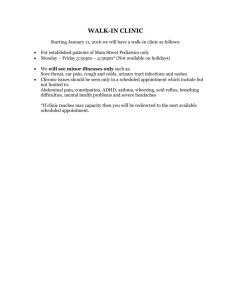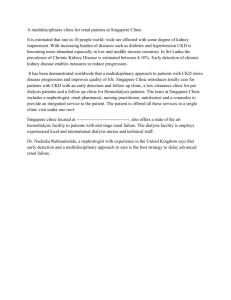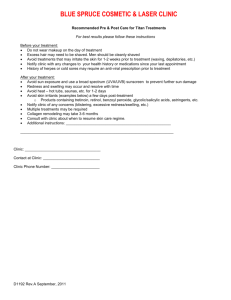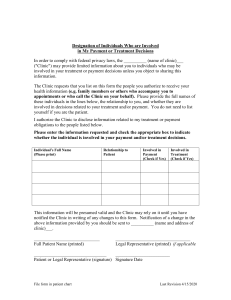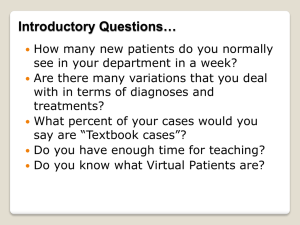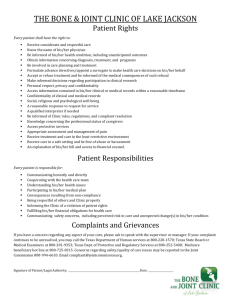A Pharmacist led immunuspression and drug monitoring clinic *Is it
advertisement
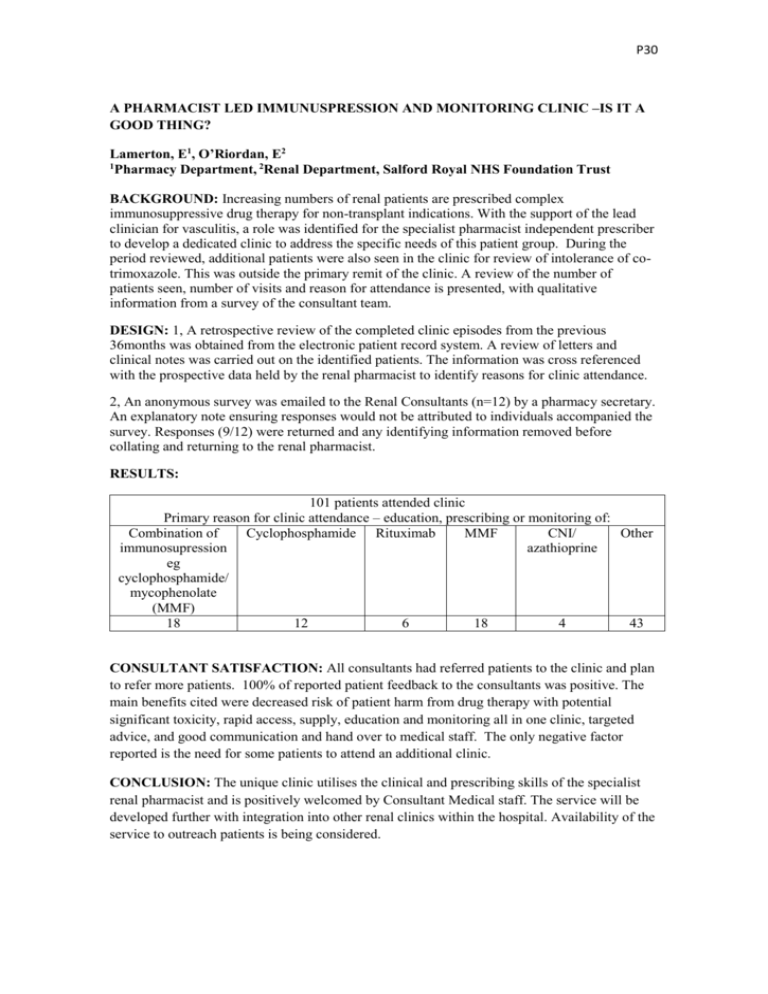
P30 A PHARMACIST LED IMMUNUSPRESSION AND MONITORING CLINIC –IS IT A GOOD THING? Lamerton, E1, O’Riordan, E2 1 Pharmacy Department, 2Renal Department, Salford Royal NHS Foundation Trust BACKGROUND: Increasing numbers of renal patients are prescribed complex immunosuppressive drug therapy for non-transplant indications. With the support of the lead clinician for vasculitis, a role was identified for the specialist pharmacist independent prescriber to develop a dedicated clinic to address the specific needs of this patient group. During the period reviewed, additional patients were also seen in the clinic for review of intolerance of cotrimoxazole. This was outside the primary remit of the clinic. A review of the number of patients seen, number of visits and reason for attendance is presented, with qualitative information from a survey of the consultant team. DESIGN: 1, A retrospective review of the completed clinic episodes from the previous 36months was obtained from the electronic patient record system. A review of letters and clinical notes was carried out on the identified patients. The information was cross referenced with the prospective data held by the renal pharmacist to identify reasons for clinic attendance. 2, An anonymous survey was emailed to the Renal Consultants (n=12) by a pharmacy secretary. An explanatory note ensuring responses would not be attributed to individuals accompanied the survey. Responses (9/12) were returned and any identifying information removed before collating and returning to the renal pharmacist. RESULTS: 101 patients attended clinic Primary reason for clinic attendance – education, prescribing or monitoring of: Combination of Cyclophosphamide Rituximab MMF CNI/ Other immunosupression azathioprine eg cyclophosphamide/ mycophenolate (MMF) 18 12 6 18 4 43 CONSULTANT SATISFACTION: All consultants had referred patients to the clinic and plan to refer more patients. 100% of reported patient feedback to the consultants was positive. The main benefits cited were decreased risk of patient harm from drug therapy with potential significant toxicity, rapid access, supply, education and monitoring all in one clinic, targeted advice, and good communication and hand over to medical staff. The only negative factor reported is the need for some patients to attend an additional clinic. CONCLUSION: The unique clinic utilises the clinical and prescribing skills of the specialist renal pharmacist and is positively welcomed by Consultant Medical staff. The service will be developed further with integration into other renal clinics within the hospital. Availability of the service to outreach patients is being considered.


